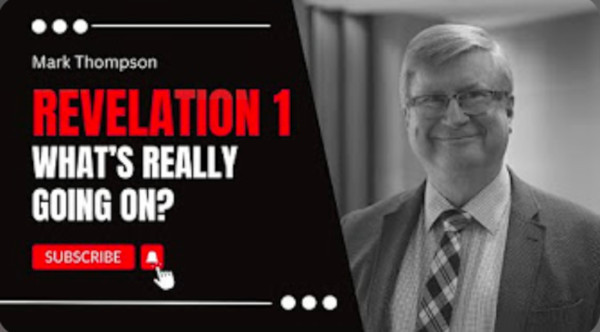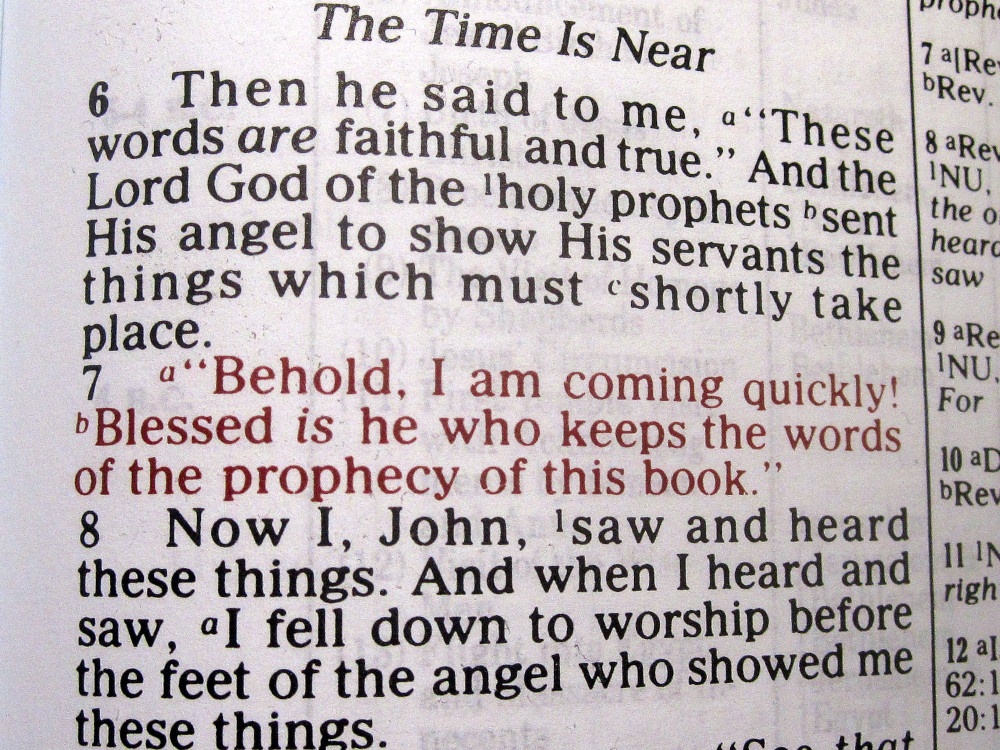I don’t know about you, but I grew up afraid of the Book of Revelation. Maybe it was the complicated explanations of the end times at my local church. It seemed esoterica nad complicated. I was afraid I was not spiritual enough to “get it.”
A friend helped me by describing Revelation like a movie with “jump cuts,” that is without a continuous narrative of A leading to B leading to C. Instead it is more like a movie that replays a theme.
A great opportunity to seriously delve into Revelation came up on my Facebook feed annoucing this youtube playlist

It is a series of nine chapel sermons A Glimpse Behind the Curtain – The Book of Revelation by Mark Thompson the principal of Moore Theological College.
“We don’t need to be afraid of Revelation because it is the good gift of the risen and triumphant Christ to people under challenge.” Mark Thompson tells The Other Cheek.
“It should give us great confidence that no matter what is happening around us, God remains sovereign and his purpose entirely on track.”
The middle chapters of Revelation are where some of us get lost. Sealsm, trumpet and angels in lots of seven, and the number 144,000. Here’s a taster of the series from sermon four where Thompson speaks about how we should read those chapters. “This morning we continue our journey through the Book of Revelation and the middle section of the book is a little like that, not so much a sequential chronological account of events to come as the same events viewed from different angles, one cycle after another, then another, and in the end you get this extraordinary sense of the whole and what is really going on in the world. And there is one majestic, splendid figure who stands alone at the centre of it all…
“Over the centuries, Christians have almost tied themselves up in knots trying to identify each of the events described in these middle chapters of the Book of Revelation. They’ve treated the book in the way some others treat the portrays of Nostradamus, a mysterious coded account of world history. And if you crack the code, it correlates brilliantly with the events we’ve seen played out in human history. Clever people have found Constantine and Napoleon and Adolf Hitler and others in these pages. Others have found the world wars, the oil crisis of the late 20th century, the GFC, the rise and fall of communism and even the rise of Donald Trump. But often these observations are a little like those pictures in which if you look closely squint one eye stand on your head and look in a mirror, then you begin to see something that you would never have seen in the first place. They’ve understood that this is a special kind of literature and that there are many symbols. Numbers have special significance, so do colours, but what they find is so varied and sometimes contradictory that you can’t help but think they’ve missed something.
“I think there are two things in particular to remember as you read this book that will keep you from falling into that trap. And the first is simply remembering to whom this was first written and why. It’s very clear from the first few chapters that this is a book written to the churches. It’s written to the congregations of believers in the Lord Jesus scattered across the Eastern Mediterranean 50 or 60 years after Jesus’ earthly ministry. It’s written to people who are under pressure. They’d heard what had happened to John. He was on the aisle of Patmos, this desolate little rock in the middle of the sea on account of the word of God and the testimony of Jesus, but he was also their brother and partner in the tribulation and the kingdom and the perfect endurance that are in Jesus. They had that in common.”
“This book was not written to satisfy idle curiosity on the part of those in relatively comfortable circumstances, nor was it written as an aggressive manifesto and challenge to those who were harassing Christians then or now. It was written to the churches, to embattled Christians to those not so much interested in the future as frightened there was no future. The forces arraigned against them seemed to be on the winning side, but they needed to know that in Jesus there is a kingdom and in Jesus they can and must patiently endure.”
The Revelation Youtube playlist is here.
Image Credit: Eric Golub/Flickr


I found John Strelan’s book “where Earth meets Heaven: A commentary on Revelation” very useful in enjoying Revelation instead of recoiling from it. Like you when I was growing up, Revelation was a book to avoid apart from the first 3 chapters.